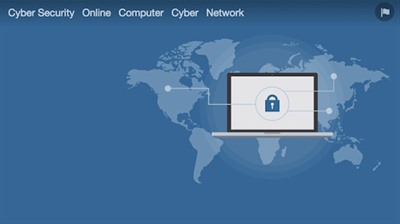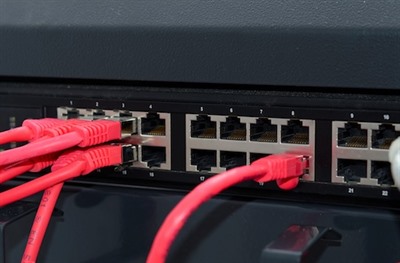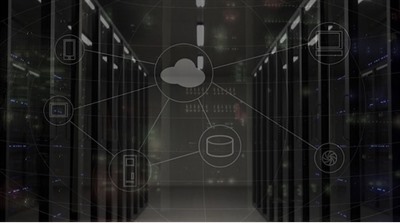
If you haven’t been living under a rock for the past five years, you would know that most governments spy on their citizens. Former National Security Agency (NSA) staffer Edward Snowden a while back revealed to the world the shocking extent to which government agencies collect user data. The U.S. is not the only culprit. Major governments like China, Russia, and Saudi Arabia has long policed and monitored citizen activity on the net. So, when you have been too worried about malware while online, you should probably have worried about government surveillance programs as well. This article will examine what government online snooping is, and explain how to get protection from a government (0-10) while you browse the net.
Why Your Government is Spying on You Online
Web tracking is not an entirely new concept. Websites and search engines like Google do track user activity to enhance the performance of services and to personalize services to individual users. The data you leave online as you browse websites is also highly valuable to companies for marketing purposes. Governments spy on netizens for more sinister purposes. Inarguably, governments and regulatory authorities do get involved online in protecting netizens of scammers, hackers, and assortments of cyber criminals. However, the data spy agencies collect are not used for such purposes. This information is collected to identify you online and to monitor your online behavior.
Governments justify online data collection as a necessary step towards protecting people from extremist ideology and terrorist threats. However, governments, like the U.S. government, do so without much of legal oversight. Most governments have broad authority and technological tools on hand to collect your data and use as however, the agency pleases. Some of the rights you may take for granted, such as right to privacy and the right to remain silent, may not exist online when agents spy on you. This is because you never know when you are being spied on and for what reason. Most of the time, the reasons are not clear. Agencies like the NSA prefer to look at the whole haystack rather than take the legal steps towards finding the needle.
There's also plenty of room left for your sensitive information to be misused to personnel involved in these agencies. For example, news reports have shown how NSA officials have used highly sophisticated spy tools to snoop on lovers, exes, and the like. Obviously, there’s little power people have to stop these things from happening.
This is not to say that government surveillance is conducted without legal backing. Some governments, like the U.K, have even passed extensive legislation facilitating broad government surveillance on the web. One law in the U.K. makes a user's web history available, without the user's consent, to over 50 police agencies. Another prompts companies to decrypt data upon government request without the knowledge of the user whose data is being decoded. Unless you are a legal expert, you won't know what information you post online the government can get access to, legally speaking.
It’s definitely in your best interest, therefore, to protect your identity online to avoid government spooks. You can never be sure exactly how much of your data is being collected by various spy tools, or worse, how the government or people involved are using this information. While it’s reassuring to believe that your information would not be misused, you can never be sure given the circumstances. For that reason, you should take the necessary steps to protect your privacy online.
How Your Information Becomes Trackable Online

You don’t connect to the massive network known as the Internet directly. You have to buy a connection package from an Internet Service Provider (ISP) located where you live. The ISP hosts the servers that control the web traffic from your PC to the web. The ISP will connect you to any site that is not blocked in your region. In other words, your ISP knows which websites you visit when you go online. The provider can easily trace your online activity by getting access to your account. ISPs, of course, do not randomly check user accounts to see what people are doing online without a court order.
Your ISP might be a private company, but it is still answerable to the government. The government can (and most likely has in your country) pass laws that compel ISPs to release information related to an individual account. This is one manner in which the government can trace your online presence.
There are several ways you can mask your presence from the ISP, and thus the government. One popular and simple method is to use a proxy server. As the name suggests, a proxy server stands between your computer or device and the destination website. The traffic will go through this proxy server, and not the ISPs server. The ISP, however, will notice that you used a proxy server, but not which websites you visited if you use the proxy properly. This is one way to anonymize your online presence.
Proxy servers are popular among people who want to access blocked sites or geo-blocked content. For example, if you want to access videos on BBC iPlayer, which are restricted to British users, from the U.S., you can bypass the geographical restriction with a proxy server.
While proxies are simple, convenient, and at times free to use, there are several notable problems associated with them. First, some proxies are run by shady people. The proxy owners may not be legitimate businesses, but cyber criminals or hackers. There’s also the possibility that the proxy itself is a CIA or NSA “honeypot” that lures people trying to get away from government snooping.
Proxies are also notoriously unreliable. Speeds can slow due to various reasons. But perhaps the main reason many people don’t trust proxies to keep them anonymous is security. Traffic that goes through web proxies are not encrypted and is thus vulnerable to spy tools that intercept data.
So how exactly can a netizen remain anonymous online? The best tool currently available is a VPN.
Why Use a VPN to Protect Yourself from Spyware Online
VPN stands for virtual private network. VPNs have been conventionally used by businesses to create large private networks to transmit data securely. These days even regular consumers can benefit from the perks offered by VPNs, mainly to remain mostly anonymous online and safe from various government surveillance programs.
VPNs use end-to-end encryption, which means that data you send is secured in a manner so that no third-party can read them. Even if a government spy tool manages to get a hold of some information sent by your PC, this information will be encrypted and unreadable. Unlike proxies, VPNs have supplier servers that reroute the traffic from your computer. This effectively masks your online activity from ISPs. The ISPs will only record the server address of the VPN provider. Some VPN companies even go as far as to delete user log data from servers so no one, not even you, can track where you have been online.
VPNs can do everything proxies can do, such as get access to blocked sites or online content. But VPNs offer much more than that regarding security. Because your connection is secure regardless of the device or connection you use, you can actually protect yourself from hackers, cyber criminals, malware, and government surveillance programs. People who routinely require secure connections, like journalists and diplomats, use VPNs. Even if you aren’t engaged in a dangerous profession, you are still vulnerable on public networks like your favorite coffee shop’s Wi-Fi. Using a VPN will protect your anywhere you go.
How to Choose a VPN

There are many VPN providers out there that offer packages for a small monthly or annual fee. But to protect yourself from spy tools, you need to be careful of what packages you choose. When buying a VPN package, you should look for basics like the location, application being supported (like BitTorrent) and the number of servers available to you. Also, check the location of the VPN Company as well. To protect yourself from government spooks, buy a package from a company operating from outside your country. Then your government will not be able to compel the VPN Company to hand over data without going through a complicated and uncertain international diplomacy process.
Always read the VPNs privacy policy before you purchase. Choose a VPN that deletes logs so that government spy tools cannot raid data. Be careful here because some VPNs do advertise no log policies but keep logs. You will need to read the fine print to understand the VPN provider's stance.
If you want to engage in online transactions securely, some VPN providers accept payments in anonymous cryptocurrencies like BitCoin and also using gift cards. These payment methods will keep details of your subscription off your identifiable bank accounts.
Take note of some things that VPNs cannot protect you from. VPNs will not prevent certain malware from getting installed on your computer if you don’t use proper malware protection. If you click on a phishing email, for example, someone will be able to track your VPN or not. VPNs cannot protect you from various online tracking tools used for advertising. A VPN will not make you anonymous on a smartphone because your smartphone connection is handled by a cellular provider.
Regardless of these drawbacks, using a VPN is better than going online naked when you want to avoid government snooping programs.
BACK TO NEWS